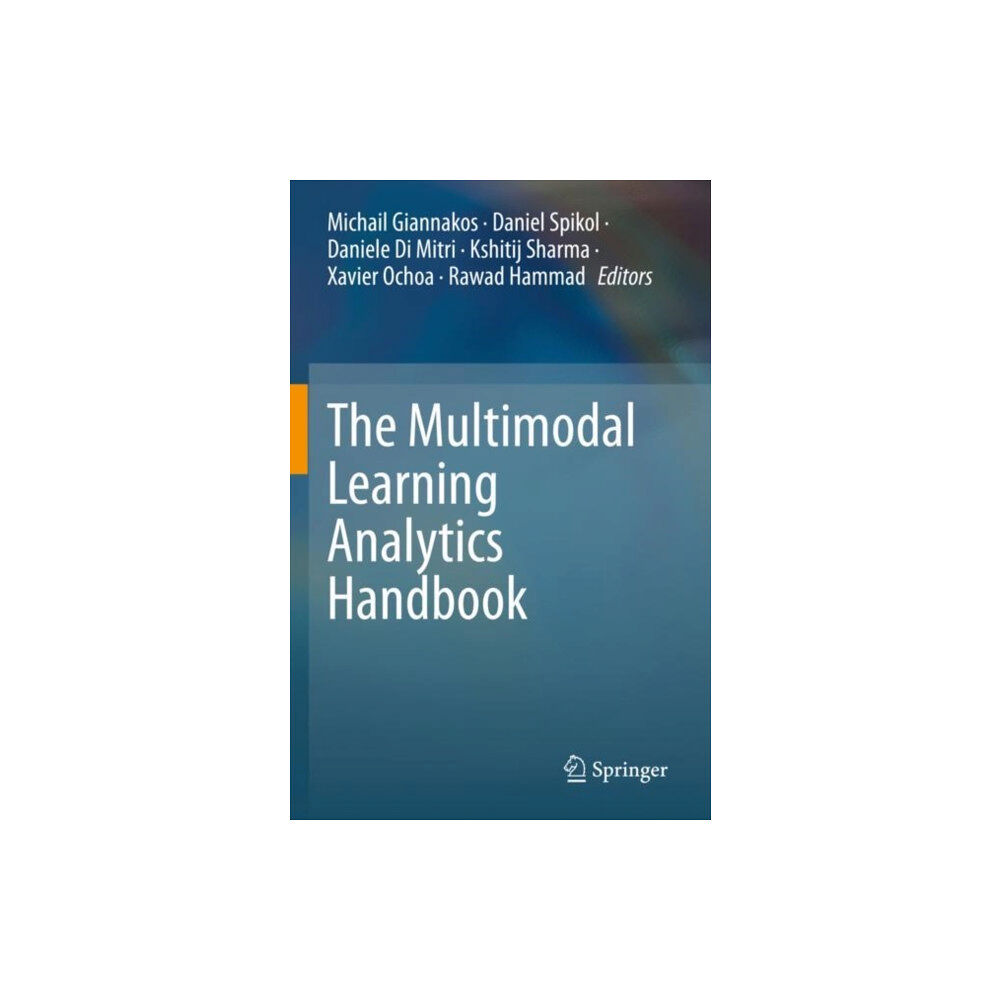- Hem
- Böcker
- Kurslitteratur
- Teknik, Industri & IT
- The Multimodal Learning Analytics Handbook (häftad, eng)

The Multimodal Learning Analytics Handbook (häftad, eng)
This handbook is the first book ever covering the area of Multimodal Learning Analytics (MMLA). The field of MMLA is an emerging domain of L...
2 089 kr
2 135 kr
Slut i lager
- Fri frakt
Fri frakt över 299:-
Snabb leverans
Alltid låga priser
Produktbeskrivning
This handbook is the first book ever covering the area of Multimodal Learning Analytics (MMLA). The field of MMLA is an emerging domain of Learning Analytics and plays an important role in expanding the Learning Analytics goal of understanding and improving learning in all the different environments where it occurs.
The challenge for research and practice in this field is how to develop theories about the analysis of human behaviors during diverse learning processes and to create useful tools that could augment the capabilities of learners and instructors in a way that is ethical and sustainable.
Behind this area, the CrossMMLA research community exchanges ideas on how we can analyze evidence from multimodal and multisystem data and how we can extract meaning from this increasingly fluid and complex data coming from different kinds of transformative learning situations and how to best feed back the results of these analyses to achieve positive transformative actions on those learning processes.
This handbook also describes how MMLA uses the advances in machine learning and affordable sensor technologies to act as a virtual observer/analyst of learning activities. The book describes how this “virtual nature” allows MMLA to provide new insights into learning processes that happen across multiple contexts between stakeholders, devices and resources.
Using such technologies in combination with machine learning, Learning Analytics researchers can now perform text, speech, handwriting, sketches, gesture, affective, or eye-gaze analysis, improve the accuracy of their predictions and learned models and provide automated feedback to enable learner self-reflection.
However, with this increased complexity in data, new challenges also arise. Conducting the data gathering, pre-processing, analysis, annotation and sense-making, in a way that is meaningful for learning scientists and other stakeholders (e.g., students or teachers), still pose challenges in this emergent field.
This handbook aims to serve as a unique resource for state of the art methods and processes. Chapter 11 of this book is available open access under a CC BY 4.0 license at link.springer.com.
The challenge for research and practice in this field is how to develop theories about the analysis of human behaviors during diverse learning processes and to create useful tools that could augment the capabilities of learners and instructors in a way that is ethical and sustainable.
Behind this area, the CrossMMLA research community exchanges ideas on how we can analyze evidence from multimodal and multisystem data and how we can extract meaning from this increasingly fluid and complex data coming from different kinds of transformative learning situations and how to best feed back the results of these analyses to achieve positive transformative actions on those learning processes.
This handbook also describes how MMLA uses the advances in machine learning and affordable sensor technologies to act as a virtual observer/analyst of learning activities. The book describes how this “virtual nature” allows MMLA to provide new insights into learning processes that happen across multiple contexts between stakeholders, devices and resources.
Using such technologies in combination with machine learning, Learning Analytics researchers can now perform text, speech, handwriting, sketches, gesture, affective, or eye-gaze analysis, improve the accuracy of their predictions and learned models and provide automated feedback to enable learner self-reflection.
However, with this increased complexity in data, new challenges also arise. Conducting the data gathering, pre-processing, analysis, annotation and sense-making, in a way that is meaningful for learning scientists and other stakeholders (e.g., students or teachers), still pose challenges in this emergent field.
This handbook aims to serve as a unique resource for state of the art methods and processes. Chapter 11 of this book is available open access under a CC BY 4.0 license at link.springer.com.
| Format | Häftad |
| Omfång | 372 sidor |
| Språk | Engelska |
| Förlag | Springer International Publishing AG |
| Utgivningsdatum | 2023-10-10 |
| ISBN | 9783031080784 |
Specifikation
Böcker
- Häftad, 372, Engelska, Springer International Publishing AG, 2023-10-10, 9783031080784
Leverans
Vi erbjuder flera smidiga leveransalternativ beroende på ditt postnummer, såsom Budbee Box, Early Bird, Instabox och DB Schenker. Vid köp över 299 kr är leveransen kostnadsfri, annars tillkommer en fraktavgift från 29 kr. Välj det alternativ som passar dig bäst för en bekväm leverans.
Betalning
Du kan betala tryggt och enkelt via Avarda med flera alternativ: Swish för snabb betalning, kortbetalning med VISA eller MasterCard, faktura med 30 dagars betalningstid, eller konto för flexibel delbetalning.
Specifikation
Det finns tyvärr inga specifikationer att visa för denna produkt.
